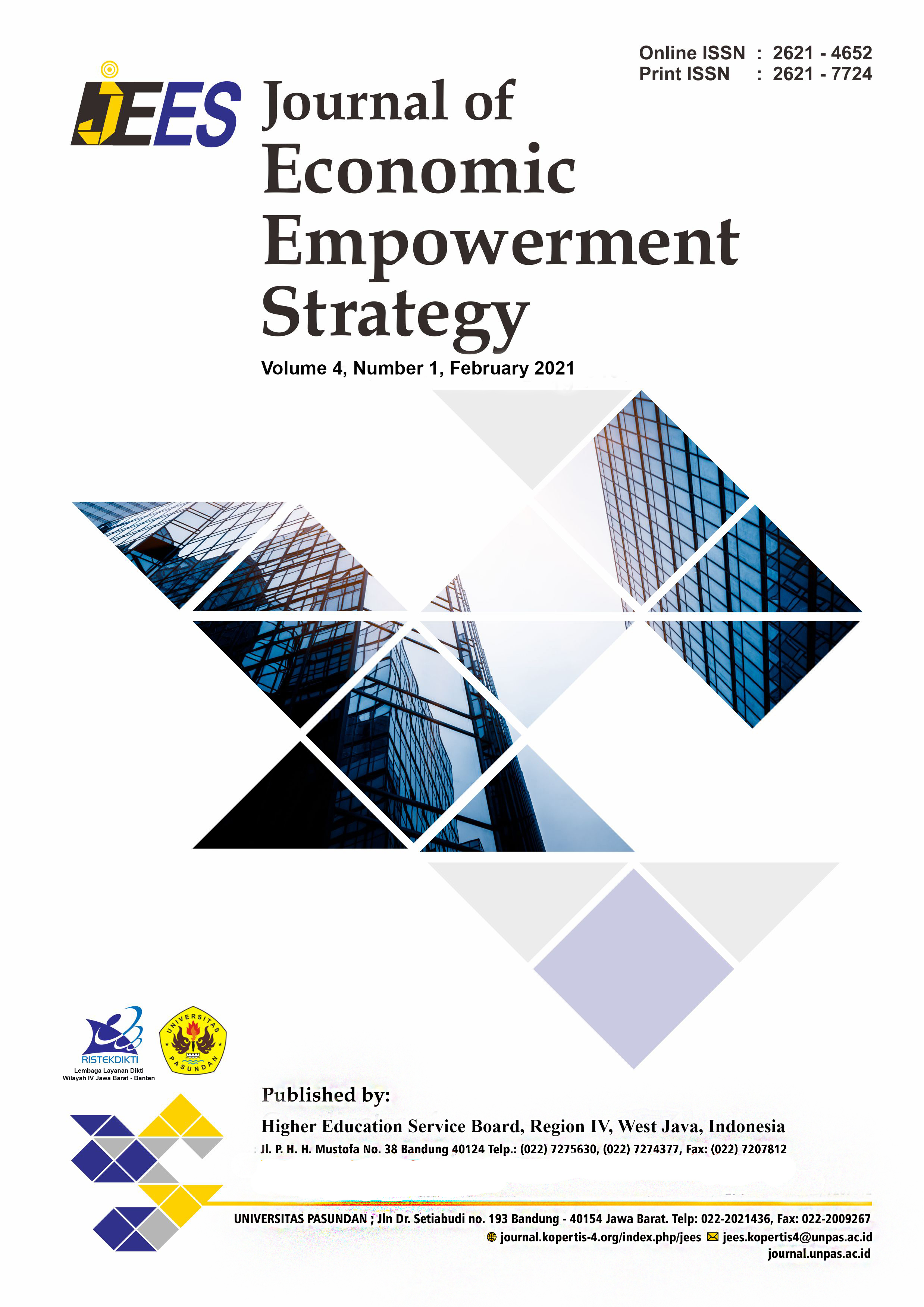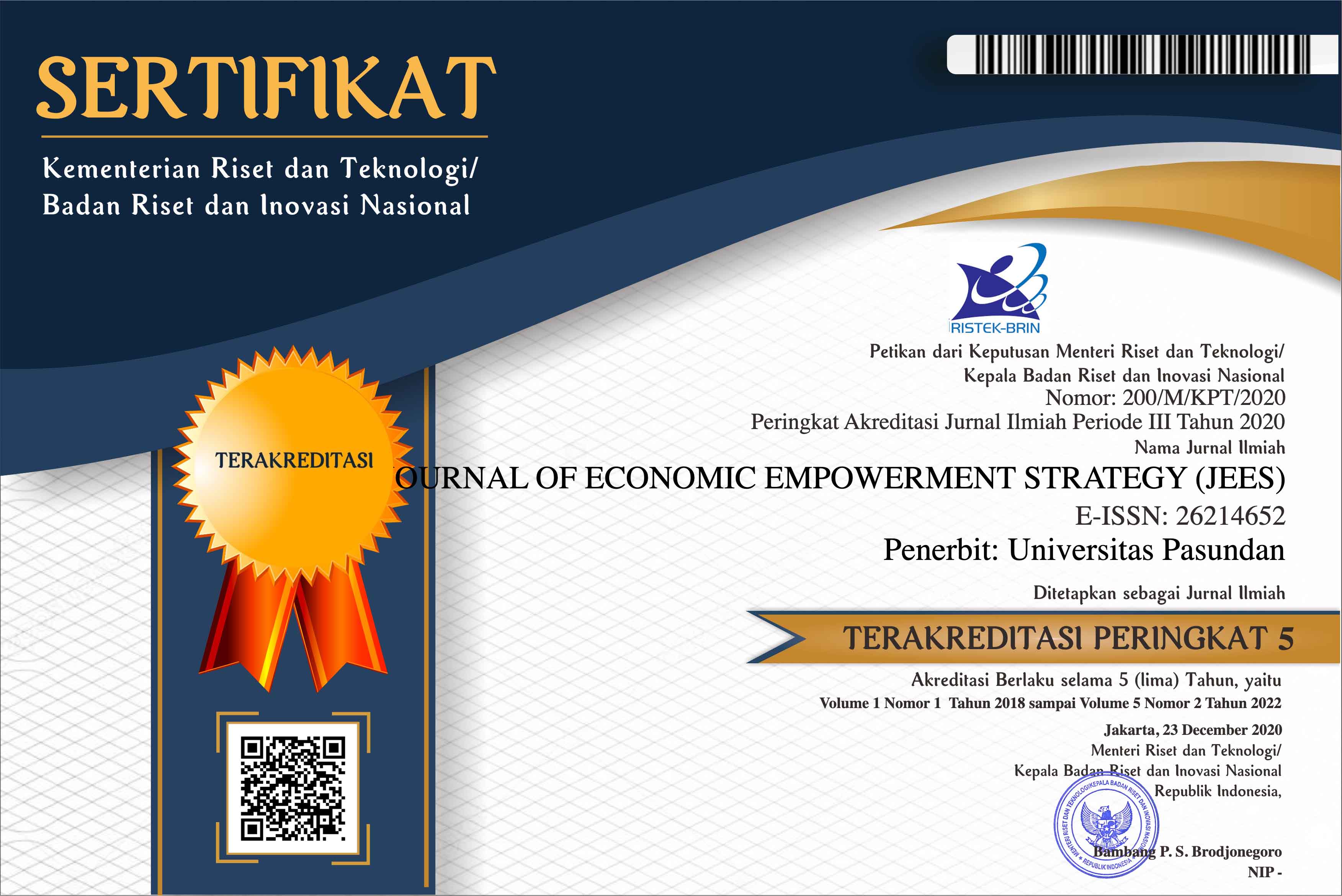THE DEVELOPMENT OF POLITICAL AND ECONOMIC EDUCATION MODELS IN WOMEN'S PARTICIPATION
DOI:
https://doi.org/10.23969/jess.v4i1.4901Abstrak
Direct Pilkada is a form of filling model for public officials so that accountability to the owners of sovereignty becomes more concrete. The problem that occurs is that the voices of women politicians are still rare, there are at least two possible realities, first, women politicians reflect more on the ideals of parties and the economy than women's interests, so that women's political participation is still low. At least 30% women's representation in the General Election as stipulated in Law Number 15 Year 2011 concerning Election Implementation. Political participation will run if the community participates in political decision-making taken by the government because the programs organized by the government are none other than for the welfare of the community in the economy itself. This study aims to relate to the representation of women in the world of politics and the economy. We have high hopes for the existence of women in direct regional head elections which are currently rolling in the world of politics and the economy. The research method used is a qualitative research method, with a case study approach. In the qualitative analysis of case studies using pervariable analysis tools that have been linked between the two then analyzed based on observations also based on interviews. The data collection techniques consisted of literature studies, field studies at the West Java KPU and Election participating parties in West Java related to political participation and the economy (through observation, interviews, questionnaires, focus group discussions) and documentation studies. The output target of this research is political participation model, economy and IPR.














